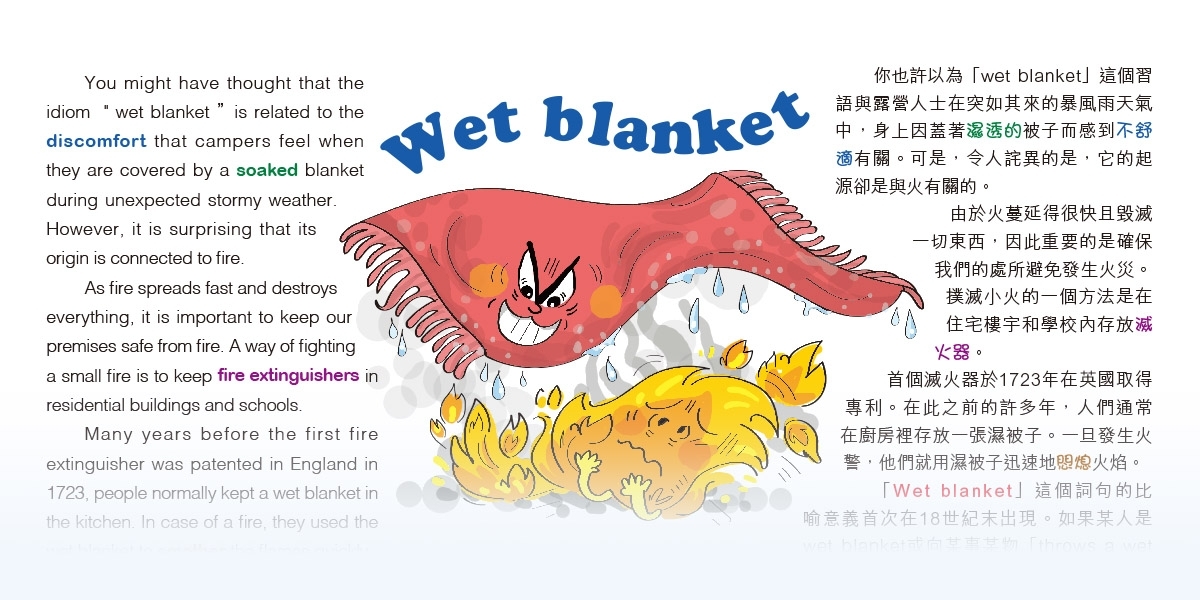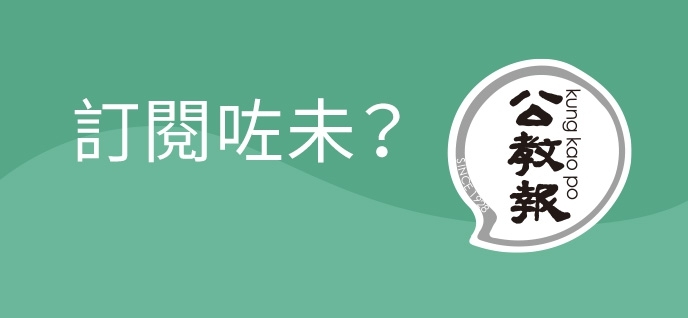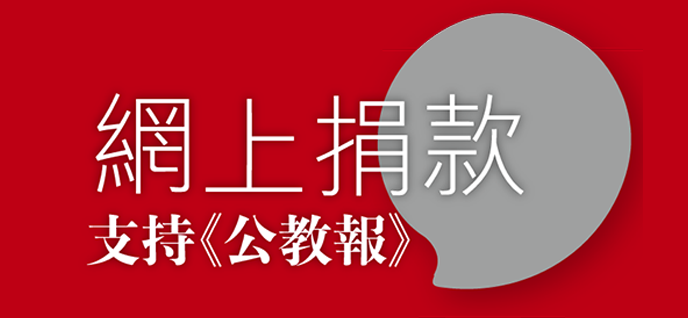
Wet blanket
You might have thought that the idiom " wet blanket ”is related to the discomfort that campers feel when they are covered by a soaked blanket during unexpected stormy weather. However, it is surprising that its origin is connected to fire.
As fire spreads fast and destroys everything, it is important to keep our premises safe from fire. A way of fighting a small fire is to keep fire extinguishers in residential buildings and schools.
Many years before the first fire extinguisher was patented in England in 1723, people normally kept a wet blanket in the kitchen. In case of a fire, they used the wet blanket to smother the flames quickly.
The expression " wet blanket ”was first used figuratively in the late 18th century. When someone is a " wet blanket ”or " throws a wet blanket ”over something, this means that he or she spoils or dampens other people's fun, as a wet blanket smothers fire. For example, She was such a wet blanket at the birthday party last Saturday that nobody would invite her again.
你也許以為「wet blanket」這個習語與露營人士在突如其來的暴風雨天氣中,身上因蓋著濕透的被子而感到不舒適有關。可是,令人詫異的是,它的起源卻是與火有關的。
由於火蔓延得很快且毀滅一切東西,因此重要的是確保我們的處所避免發生火災。撲滅小火的一個方法是在住宅樓宇和學校內存放滅火器。
首個滅火器於1723年在英國取得專利。在此之前的許多年,人們通常在廚房裡存放一張濕被子。一旦發生火警,他們就用濕被子迅速地悶熄火焰。
「Wet blanket」這個詞句的比喻意義首次在18世紀末出現。如果某人是wet blanket或向某事某物「throws a wet blanket」,這即是說他或她破壞他人的興致,或令人掃興,猶如一張濕被子把火悶熄。例如:她上星期六在生日會上異常掃興(wet blanket),所以沒有人會再邀請她了。






